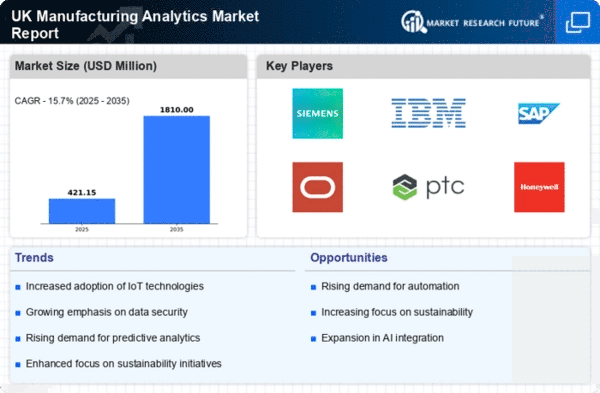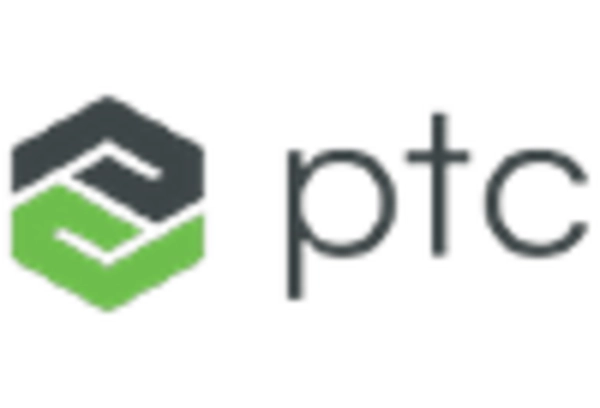Integration of IoT Technologies
The integration of Internet of Things (IoT) technologies significantly influences the manufacturing analytics market. IoT devices enable manufacturers to collect vast amounts of data from machinery and production lines, facilitating advanced analytics capabilities. In the UK, the adoption of IoT in manufacturing is projected to grow by 25% over the next five years. This integration allows for predictive maintenance, reducing downtime and enhancing productivity. As manufacturers increasingly recognize the value of IoT-driven analytics, the demand for sophisticated analytics solutions is expected to rise, further driving the growth of the manufacturing analytics market.
Emphasis on Operational Efficiency
A strong emphasis on operational efficiency is shaping the manufacturing analytics market. UK manufacturers are under pressure to reduce costs and improve productivity, leading to a heightened focus on analytics solutions that can streamline operations. Recent studies indicate that companies utilizing analytics tools have reported a 15% increase in overall efficiency. This trend is likely to continue as organizations seek to leverage data to identify inefficiencies and implement corrective measures. Consequently, the manufacturing analytics market is poised for growth as businesses prioritize solutions that enhance operational performance.
Growing Importance of Data Security
As the manufacturing analytics market expands, the importance of data security is becoming increasingly prominent. With the rise of cyber threats, UK manufacturers are prioritizing the protection of sensitive data generated through analytics processes. This concern is driving investments in secure analytics solutions that comply with regulatory standards. Approximately 60% of manufacturers in the UK are expected to enhance their cybersecurity measures in conjunction with their analytics initiatives. This focus on data security not only safeguards intellectual property but also fosters trust among stakeholders, thereby supporting the growth of the manufacturing analytics market.
Rising Demand for Real-Time Data Insights
The manufacturing analytics market is experiencing a notable surge in demand for real-time data insights. This trend is driven by the need for manufacturers to enhance operational efficiency and make informed decisions swiftly. In the UK, companies are increasingly leveraging analytics tools to monitor production processes, identify bottlenecks, and optimize resource allocation. According to recent data, approximately 70% of manufacturers in the UK are investing in analytics solutions to gain actionable insights. This shift towards data-driven decision-making is likely to propel the growth of the manufacturing analytics market, as organizations seek to remain competitive in a rapidly evolving landscape.
Increased Focus on Customization and Personalization
The manufacturing analytics market is witnessing an increased focus on customization and personalization of analytics solutions. UK manufacturers are recognizing the need for tailored analytics tools that address specific operational challenges and industry requirements. This trend is reflected in the growing demand for bespoke analytics platforms, which are projected to account for 30% of the market by 2026. By offering customized solutions, analytics providers can better meet the diverse needs of manufacturers, thereby driving market growth. This shift towards personalization is likely to enhance user engagement and satisfaction within the manufacturing analytics market.

















